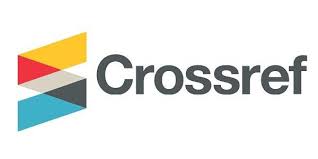ANALISIS PENGARUH GREEN ACCOUNTING TERHADAP NILAI PERUSAHAAN DENGAN STRATEGI BISNIS SEBAGAI VARIABEL MODERASI
DOI:
https://doi.org/10.25170/wpm.v16i2.6201Keywords:
Firm Value, Green innovation, Green accounting, Green intellectual capital, Business Strategy, Environmental SustainabilityAbstract
This study was conducted to examine the impact of green accounting and other variable of green action on firm value, with business strategy serving as a moderating variable. The data for this research was gathered from sustainability and financial reports of non-financial companies listed on the Indonesia Stock Exchange in 2018-2022. The sample consisted of 18 non-financial companies, with a total of 90 data points analyzed. The research employed descriptive statistical analysis and multiple linear regression analysis using SPSS 26. The findings indicate that green innovation and green intellectual capital positively affect firm value, while green accounting does not have an impact. Additionally, the study reveals that business strategy strengthens the effect of green intellectual capital on firm value and weakens the effect of green accounting on firm value, but does not moderate the effect of green innovation on firm value.
References
Agustia, D., Sawarjuwono, T., & Dianawati, W. (2019). The mediating effect of environmental management accounting on green innovation - Firm Value relationship. International Journal of Energy Economics and Policy, 9(2), 299–306.
Agustin, F. D., & Augustine, Y. (2023). Why Green IC does not Influence Firm Value? Technium Social and Sciences Journal, 329–338.
Aguzman, G. (2021). Teori Resource Based View. Binus University - Binus Entrepreneurship Center.
https://binus.ac.id/entrepreneur/2021/11/30/teori-resource-based-view/
Ahmar, N., & Astuti, T. (2023). Competitive Advantage Based on Green intellectual capital and Green innovation. Journal of Engineering, Social and Health, 2(11), 1406-1411.
Ajayi, & Theophilus, A. (2020). Voluntary Or Mandatory Disclosure of Financial Information by Listed Corporate Entities in Nigeria: The Stakeholders’ Perspectives. European Journal of Business, Economics and Accountancy, 8(2). 73-86.
Al-Rdaydeh, M., Almansour, A. Y., & Al-Omari, M. A. (2018). Moderating Effect of Competitive Strategies on The Relation Between Financial Leverage and Firm Performance: Evidence from Jordan. Business and Economic Horizons, 14(3), 626–641.
Anggita, W., Nugroho, A. A., & Suhaidar. (2022). Carbon Emission Disclosure and Green accounting Practices on The Firm Value. Jurnal Akuntansi, 26(3), 464–481.
Astuti, T., Amyulianthy, R., & Kaniati, R. (2022). Green accounting, Financial Performance toward Firm Value. Asian Journal of Accounting and Finance. 4(1), 1-12.
Barney, J. B. (2001). Resource-Based Theories of Competitive Advantage: A Ten-Year Retrospective on The Resource-Based View”,. Journal of Management, 27(6), 643–650.
Chandra, M., & Augustine, Y. (2019). Pengaruh Green intellectual capital Index Dan Pengungkapan Keberlanjutan Terhadap Kinerja Keuangan Dan Non Keuangan Perusahaan Dengan Transparansi Sebagai Variabel Moderasi. Jurnal Magister Akuntansi Trisakti, 6(1), 45–70.
Chen Jia Wen, & Liu Lin Lin. (2019). Profiting from Green innovation: The moderating effect of competitive strategy. Economic and Business Aspects of Sustainability, 11(1), 15.
Chen Yu Shan. (2008). The Positive Effect of Green intellectual capital on Competitive Advantages of Firms. Journal of Business Ethiccs, 77(3), 271–286.
Dowling, J., & Pfeffer, J. (1975). Organizational Legitimacy: Social Values And Organizational Behavior. Pacific Sociological Journal Review, 18, 122–136.
El-Kassar, A. N., & Singh, S. K. (2019). Green innovation And Organizational Performance: The Influence Of Big Data and The Moderating Role Of Management Commitment and HR Practices. Technological Forecasting and Social Change, 144, 483–498.
Gantino, R., Ruswanti, E., & Widodo, A. M. (2023). Green accounting and Intellectual Capital Effect on Firm Value Moderated by Business Strategy. Jurnal Akuntansi, 27(1), 38–61.
Ghozali, I. (2021). Aplikasi Analisis Multivariate dengan Program IBM SPSS 26 Edisi 10. Semarang: Universitas Diponegoro.
Jifia, C., & Kusumadewi, N. L. G. L. (2022). Faktor-faktor yang mempengaruhi nilai perusahaan pada perusahaan terbuka sektor manufaktur periode 2016 - 2020. Prosiding Working Papers Series In Management, 14(2), 620–638.
Hermawan, D. (2021). The Effect of Competitive Strategies on Company Performance with Supply Chain Management as Moderating Variables in Indonesian Manufacturing Corporations. Uncertain Supply Chain Management, 9(2), 237–246.
Maysaroh, & Kusmilawaty. (2023). Analisis Perlakuan Akuntansi Atas Biaya Pengolahan Limbah Pabrik Kelapa Sawit (PKS) Ajamu Panai Hulu Berdasarkan Perspektif Syariah. Jurnal Ilmiah Ekonomi Islam, 9(02), 2537–2544.
Morthy, K., & Yacob, P. (2013). Green accounting: Cost Measures. Open Journal of Accounting, 2(1), 4–7.
Muchammad, B. (2018). The Effect of Business Strategy and Environmental Performance on Firm Value. Russian Journal of Agricultural and Socio-Economic Sciences, 11(83), 151–160.
Nariswari, S.L. (2022). Survei: Konsumen Indonesia Makin Peduli Produk Ramah Lingkungan. Retrieved September 30, 2023, https://lifestyle.kompas.com/read/2022/09/20/184205220/survei-konsumen-indonesia-makin-peduli-produk-ramah-lingkungan
Undang-undang (UU) Nomor 32 Tahun 2009. Undang-undang (UU) Nomor 32 Tahun 2009 tentang Perlindungan dan Pengelolaan Lingkungan Hidup. Jakarta: Menteri Hukum dan Hak Asasi Manusia Republik Indonesia
Tonay, C., & Murwaningsari, E. (2022). Pengaruh Green innovation Dan Green intellectual capital Terhadap Nilai Perusahaan Dengan Ukuran Perusahaan Sebagai Moderasi. Jurnal Bisnis dan Akuntansi, 24 (2), 283-294.
Peraturan Otoritas Jasa Keuangan Nomor 51/POJK.03/2017. (2017). Peraturan Otoritas Jasa Keuangan Nomor 51 /POJK.03/2017 tentang Penerapan Keuangan Berkelanjutan bagi Lembaga Jasa Keuangan, Emiten, dan Perusahaan Publik. Jakarta: Menteri Hukum dan Hak Asasi Manusia Republik Indonesia
Pollution Index by Country 2023 Mid-Year. (2023). Numbeo. https://www.numbeo.com/pollution/rankings_by_country.jsp?title=2023
Pratama, I. S., & Devijayanti, D. R. (2022). Pengaruh pengungkapan corporate social responsibility terhadap institutional ownership pada perusahaan high-profile yang listing di bursa efek Indonesia. Jurnal Ekonomi, Keuangan dan Manajemen, 18(3), 540.
Riyadh, H. A., Al-Shmam, M. A., Huang, H. H., Gunawan, B., & Alfaiza, S. A. (2020). The Analysis of Green accounting Cost Impact on Corporations Financial Performance. International Journal of Energy Economics and Policy, 10(6), 421–426.
Wheelen, T. L., Hunger, J. D., Hoffman, A. N., & Barnford, C. E. (2018). Strategic Management and Business Policy: Globalization, Innovation, And Sustainability. New York: Pearson.
Sapulette, S. G., & Limba, F. B. (2021). Pengaruh Penerapan Green accounting dan Kinerja Lingkungan terhadap Nilai Perusahaan Manufaktur yang terdaftar di BEI tahun 2018-2020. Jurnal Akuntansi, Universitas Pattimura, 2 (1). 31-43.
Spence, M. (1973). Job Market Signaling. The Quarterly Journal of Economics, 87(3), 355-374.
Sukmadilaga, C., Winarningsih, S., Yudianto, I., Lestari, T. U., & Ghani, E. K. (2023). Does Green accounting Affect Firm Value? Evidence from ASEAN Countries. International Journal of Energy Economics and Policy, 13(2), 509–515.
Tonay, C., & Murwaningsari, E. (2022). Pengaruh Green innovation Dan Green intellectual capital Terhadap Nilai Perusahaan Dengan Ukuran Perusahaan Sebagai Moderasi. Jurnal Bisnis dan Akuntansi, 24 (2), 283-294.
Xie Zhao Dong, Wang Jian Zhi, & Zhao Guo Qin. (2022). Impact of Green innovation on Firm Value: Evidence from Listed Companies in China’s Heavy Pollution Industries. Frontiers in Energy Research, 9, 1-17
Yuniarti, R., Soewarno, N., & Isnalita. (2022). Green innovation on Firm Value with Financial Performance as Mediating Variable: Evidence of The Mining Industry. Asian Academy of Management Journal, 27(2), 41–58.



